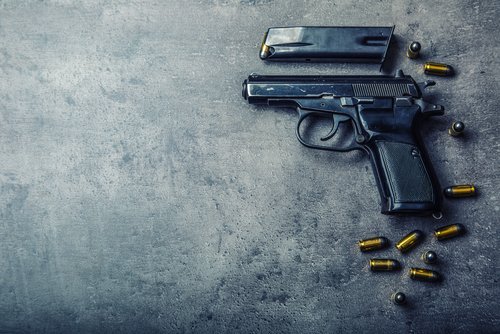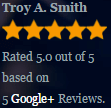You should take weapon possession charges seriously. New York takes weapon possession session seriously, and have some of the harshest laws in the country for it. You need to ask important questions when facing these charges. You’ll want to know what weapons possession charges are. You’ll also want to know some of the charges in New York and the consequences. It’s important to understand how an experienced attorney can help as well. Will give you the answers to these critical questions below.
What Are Weapon Possession Charges?
Weapon possession charges come about when you commit a crime or are under arrest with a weapon on you. Weapon possession includes knives, explosives, guns, and many other weapons. If the cops stop you, and you have a weapon, you could get charged with weapon possession.
What Are Some Charges in New York?
New York breaks the charges down into several different categories. Each charge carries a different mandatory minimum with it.
Criminal Possession of a Weapon in the 4th Degree
Weapons like switchblade knives, cane swords, electric dart guns, blackjacks, and stun guns fall into this category. The full list of weapons could go on for a long time. Some weapons on the list have legal uses. Weapons like razor blades fall into this category when the person shows intent. If the prosecution determines that you possess the weapon to harm someone you could get charged. Charges in this category are a misdemeanor and not a felony.
Criminal Possession of a Weapon in the 3rd Degree
One section of this category of charges comes when a person violates the 4th-degree law but has a previous Criminal conviction. It’s one of the most common charges under the weapon possession laws. In a sense, it’s a bump up to the 4th-degree charge. Instead of a misdemeanor, it’s bumped up to a felony charge. You could face 3rd-degree charges if you deface the weapon. This includes scratching off any identifying or serial number and modifying the firearm. The 3rd-degree charge applies if you possess three or more firearms and don’t hold a proper license. You may also face these charges if you possess a firearm and have a felony or class A misdemeanor conviction within the last five years.
Criminal Possession of a Weapon in the 2nd Degree
You could get charged with this if you’re in possession of a loaded firearm outside your home or place business without a permit. New York treats this as a serious crime even without intent. Loaded goes beyond bullets in the gun in this case. This charge includes a gun that’s capable of being loaded. If the gun’s in a case with ammunition or you have some in your pocket, you’re in violation of the law. You could get charged with this if bullets lay nearby. If the gun’s empty but bullets lay next to you, it’s considered a loaded gun. You must have a valid New York gun license. Out-of-state licenses won’t cut it in New York. It doesn’t matter whether or not you’re aware of the laws. The state will charge you regardless in this case.
Possession of a Weapon in the First Degree
According to the state of New York people receive this charge when they have an explosive device or 10 or more guns without a permit. These charges come with harsh penalties as the state considers it a class B felony. Typically this charge comes with terrorism charges if you’re in possession of a bomb. The state looks at you as an illegal gun dealer if you possess 10 or firearms. It’s only in rare occurrences that the state brings this charge.
What Are Some Consequences of a Conviction?
Again, New York takes a hard stand against weapons charges. You could face up to a year in jail for a misdemeanor charge of 4th-degree possession. A conviction on a 2nd-degree charge carries a minimum sentence of 3 1/2 years with a maximum of 15 years. A 1st-degree conviction comes with a minimum of 5 years and a maximum of 25 years. As a convicted felon you may encounter problems finding a job. You also lose the right to vote.
How Can an Experienced Attorney Help?
A skilled attorney can help you in different ways. The attorney can determine if you were searched illegally and that illegal search could get your case thrown out. A good attorney knows the weapon possession laws well and can fight the charges. They may use lack of DNA evidence at trial or throughout plea negotiations to help you. The attorney will do everything in their power to lessen charges during play negotiations to get you a better deal. Their years of experience will ensure your case is as strong as possible.












